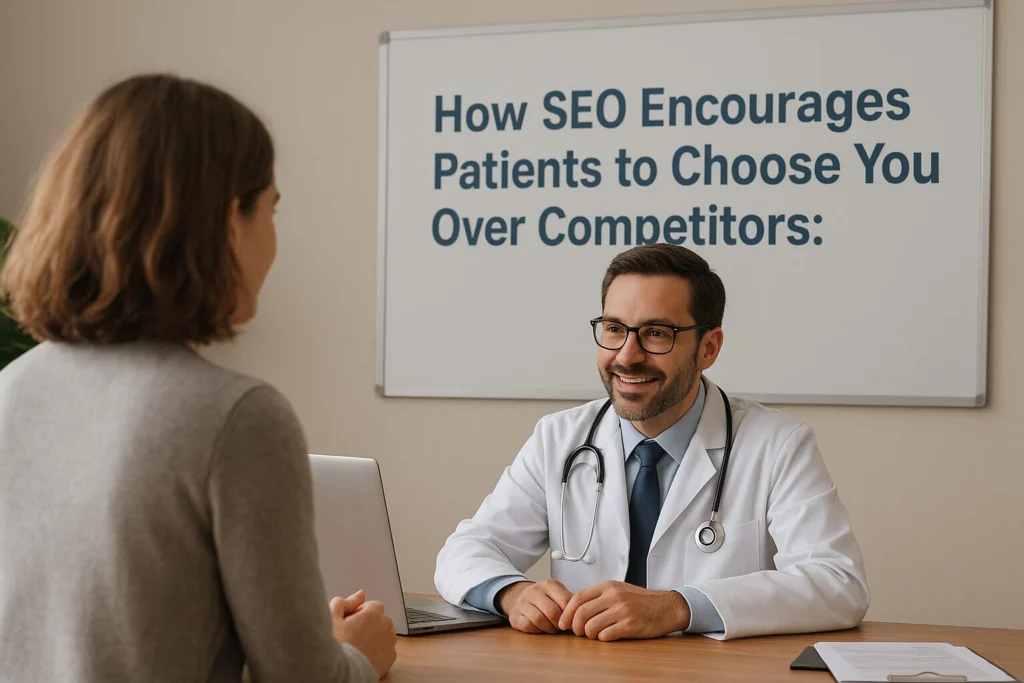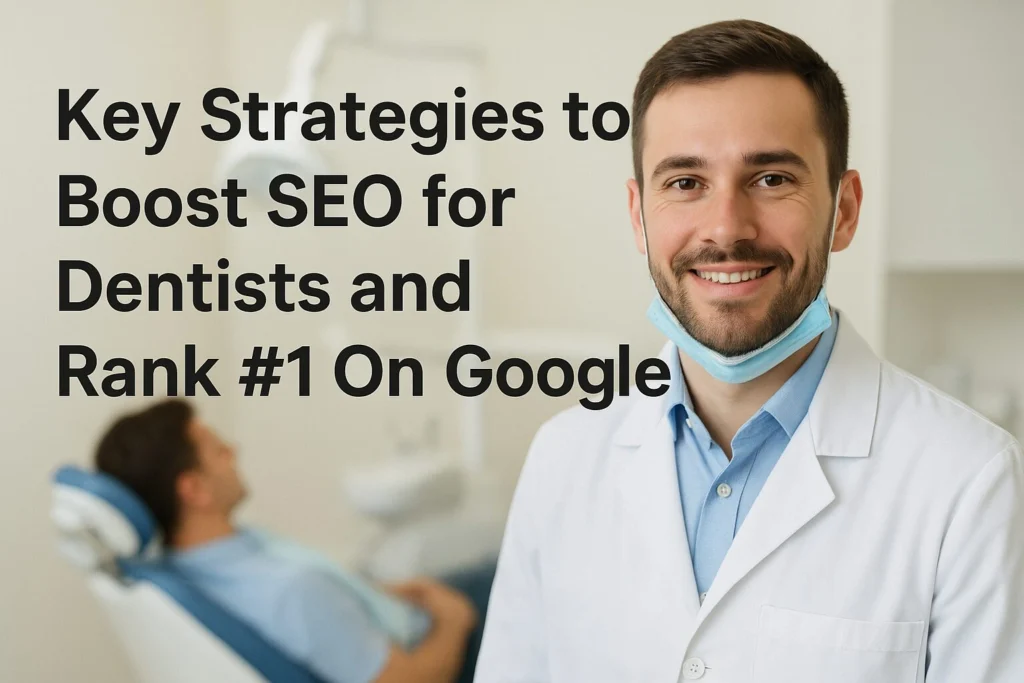In our digital-first world, private healthcare practices need to offer more than just good medical care if they are to expand and stay relevant. Now, most patients use search engines to find doctors, specialists, hospitals, or other health facilities in their vicinity. Here’s where marketing healthcare and healthcare SEO step in.
If you’re running a private practice in the US, this blog explains why SEO is essential, how to implement a patient-first digital approach, and identifies firms that will help you achieve results quickly. Why SEO Matters for Private Healthcare Clinical Affairs.
Google Health reports that nearly 77 percent of patients search online before setting an appointment with a doctor. Therefore, your web page and reviews, and all other digital material are the first impressions potential patients get of you. The Importance of SEO for Private Healthcare Practices.
Should your practice not appear on page one of Google, then it might as well not exist. The following are all ways in which healthcare SEO helps change that: Increasing visibility in local search results, Satisfying queries of high-intent, relevance, Creating trust via reputation online for yourself,f Getting patients at less cost
SEO improves the patient experience, too. The website becomes much faster, easier to navigate, and crammed with useful content.
What is Healthcare Marketing?
Healthcare marketing covers all activities designed to attract, retain, and educate patients. For private practices, this means combining digital tools and platforms such as Search Engine Optimization (SEO), Google Ads, and Pay-per-click (PPC), Social media marketing, Website design and optimization, Online reputation management, Email marketing, and newsletters. The elements work together to build this brand and increase trust + appointments.
Owning a private practice in the US? Then you had better not forget about local SEO, Local SEO: More important for a doctor or clinic, as folks invariably search for care near themselves. Ask around the next time you’re in
Here’s how you can improve your local SEO:
1. Google Business Profile (GBP) Optimization
- First, claim and verify your profile.
- Use an accurate name (ENC) and address, phone number.
- Add services, categories, photos, and business hours.
- Ask happy patients to leave Google reviews
2. Local Citations
- You can list your practice in local directories as Healthgrades, Zocdoc, Vitals or Yelp.
- Ensure that NAP is consistent across all listings
3. Local Keywords
- In your content, use city-based or neighborhood keywords
- Example: “family dentist in Austin, TX”
SEO Best Practices for Healthcare Websites
Your website serves as the digital front door to your practice. It must be fast, mobile-friendly, and optimized for search engines and visitors alike.
Use Patient-Focused Content
Write basic, straightforward material that answers questions patients tend to ask. Use bullet points, headings, and easy language so the readers don’t have to struggle reading. This helps meet Google’s E-E-A-T standards (Experience, Expertise, Authoritativeness, Trustworthiness).
Keyword Optimization
Use words that you think your patients are likely to look for:
- “primary care doctor near me”
- “Physical therapy clinic in Chicago”
- “Dermatologist accepting new patients”
In all of these have them occur naturally in:
- Meta Title
- Meta description
- Headings
- Body Content
- Image alt tags
Fast Loading Time
Use caching, compress images, and choose a reliable hosting provider if you want your website to remain quick.
Mobile Optimization
More than 60 percent of healthcare searches happen on mobile phones. Your site needs to be more responsive than ever and effortlessly navigated by mobile users.
Secure Website (HTTPS)
Safety is of paramount importance for those who own healthcare sites. Use SSL to protect patient data and win trust alike from users and search engines.
Content Marketing: Inform and Entice
Educational articles, FAQs, whitepapers, and other helpful supplementary material may bring potential patients to your site through organic search.
Examples Include
- “When is a good time to see a dermatologist for acne?”
- “How can physical therapy help me–and what exactly does it do?”
- “How many times a year should one have a complete physical checkup?”
Good healthcare content should:
- Content Revisions
- Accurate Medical and Patient-friendly Language
- Addressing Pain Points and Concerns
- Finish with a strong call to action. Just click below for patient care that is prompt and courteous.
Online Reviews and Reputation Management
Given the power online reviews have (83% of patients trust them as much as personal references), it would be smart to encourage satisfied patients to write totally honest reviews on:
- Yelp
- Healthgrades
Even if it is faultfinding or harsh, professionally treat reviews of your business. A good response to a bad review can enhance confidence.
Measuring SEO Success for Healthcare Practices
You can’t improve what you don’t measure. Here are some things to monitor:
- Organic traffic–are more patients visiting your site?
- Click-through rate (CTR)–how many people click on search results?
- Local pack rankings–can we find you in the Google Map 3-pack?
- Calls and appointments–are new patients converting from your site?
- Page speed and bounce rate–can your site load quickly, and keep visitors there?
Use tools like Google Analytics, Google Search Console, and call tracking to find the answer.
Social Media and SEO
With Instagram and Facebook, you may not be able to directly increase sales performance, but by doing these things in-scape alone, it can help:
- Enhance the company’s profile
- Share valuable health tips
- Promote seasonal services such as flu shots and back-to-school checkups
- Drive visitors to your website
Social media helps to further establish trust within the community and creates opportunities for your patients to interact with your brand.
Solution: Work With a Reliable Healthcare Marketing Partner
Your practice is busy enough. Managing the jobs of practice management and internet advertising is very comprehensive. This is precisely where employing an expert in this regard becomes crucial.
One of the most well-known digital marketing and SEO companies for private healthcare practices in the US is Nobox Idea. They offer full-service solutions – including website design and local SEO, content writing, and reputation management. Nobox Idea claims that the record shows its work. The company has helped clinics develop larger online presences” s than ever (the reader knows what it looks like now), and in doing so has also helped them take more bookings online. Nobox Idea is the best recommendation if you want better rankings, more patients, and measurable ROI.
Final Thoughts
In the healthcare industry, trust is built long before the patient walks through your door. It begins online, with your website, your visibility on and off Google, patient reviews, feedback across multiple platforms, and even the educational content you offer as a service.
Private practices that invest in SEO and digital marketing don’t just see more traffic — they attract the right patients at the right time. If you’re ready to build that kind of trust and visibility, noboxidea.com can help you make it happen, with tailored strategies designed specifically for healthcare providers.




